Over the past century, the world has witnessed many technological explosions that have changed the destiny of humanity and created huge fortunes. But none has been as powerful, fast and focused as the current artificial intelligence (AI) revolution.
“Looking at over 100 years of data, there has never been a wealth creation this fast and this large,” commented Andrew McAfee, principal investigator at the Massachusetts Institute of Technology (MIT): “unprecedented.”
McAfee’s assessment is not an exaggeration. The AI craze is quickly becoming the largest wealth-creating boom in recent history. According to CB Insights, there are now 498 AI “unicorns” (private companies valued at $1 billion or more) with a combined market capitalization of $2.7 trillion. More surprisingly, 100 of them were founded since 2023.
Huge funding rounds for startups like Anthropic, Safe Superintelligence, OpenAI, and Anysphere have minted dozens of “paper” billionaires in just one year. This isn’t just about numbers, it’s about the rise of a new generation of tech elites who hold the key to shaping the future.
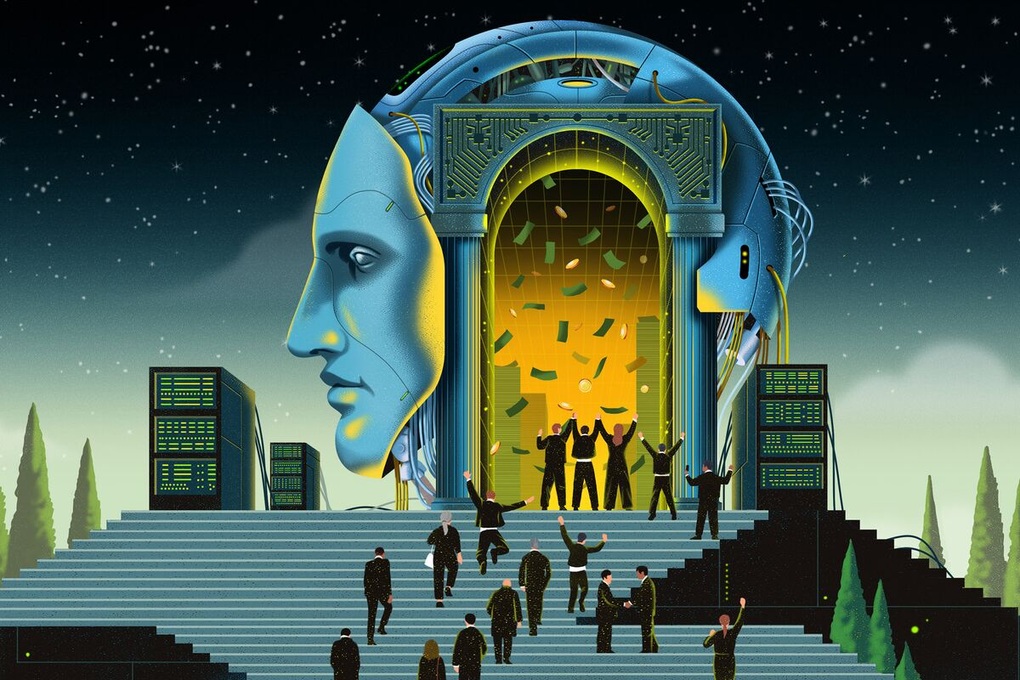
The artificial intelligence craze is fast becoming the biggest wealth-creating boom in recent history (Photo: Bloomberg).
Portraits of new "gods" in the AI pantheon
Unlike previous waves of technology, the AI billionaire empire is built on many different pillars, from those who create hardware platforms, those who develop groundbreaking language models, to those who apply AI to specific fields.
Hardware King: Jensen Huang ($113 billion)
Leading the pack is Nvidia CEO Jensen Huang. If the AI revolution is a gold rush, then Huang is the pick and shovel seller. Nvidia’s graphics processing units (GPUs) have become the heart, the indispensable computing power for every AI model.
The booming demand has pushed Nvidia’s valuation to $4 trillion by July 2025, making Huang one of the 20 richest people on the planet. He is the clearest example of the philosophy: in an arms race, the richest are the weapons manufacturers.
Generative AI Pioneers: Sam Altman ($1.9 billion) and Dario Amodei ($1.2 billion)
Sam Altman, CEO of OpenAI, is probably the most recognizable face. While he doesn’t own a direct stake in OpenAI (which is valued at $300 billion), Altman’s $1.9 billion fortune comes from his sharp investments in startups like Stripe, Reddit, and the sale of his previous company, Loopt. He’s a symbol of leadership and vision in the AI era.
Meanwhile, Dario Amodei, who left OpenAI to found Anthropic, represents a different path: developing safe and ethical AI. With a company valuation of $61.5 billion, Amodei’s $1.2 billion fortune is directly derived from his efforts to build more responsible AI.
The young "gold digger" generation: Alexandr Wang ($2.7 billion)
At 26, Alexandr Wang is the world’s youngest self-made AI billionaire. He realized that even the smartest AI models need carefully labeled data to learn from. Wang founded Scale AI at age 19 and has focused on this foundational but crucial work, serving more than 300 giant clients like Google, Meta, and General Motors.
Owning 14% of the $14 billion company, Wang is a role model for a generation of young entrepreneurs who know how to find lucrative niche markets in a major revolution.
Disruptors and Smart Applicators
The game is not just for platform creators.
In China, DeepSeek's Liang Wenfeng ($1 billion) made a splash when he released a language model that could compete with ChatGPT but reduce computational costs by up to 80%, a move that sent Nvidia's stock plunging 17% in a day.
Yao Runhao ($1.3 billion), CEO of Paper Games, proves that AI can create completely new entertainment experiences. His interactive dating game "Love and Deepspace" has attracted more than 6 million users per month by leveraging AI to tell stories, specifically targeting female gamers.
Even in a traditional industry like translation, Phil Shawe ($1.8 billion), co-CEO of TransPerfect, has turned AI into a core growth driver, helping the company achieve $1.3 billion in annual revenue.
Anatomy of a Boom: Paper Wealth and the Resurgence of Silicon Valley
One of the biggest differences between the AI craze and the dot-com bubble of the late 1990s is how assets are created and held.
The vast majority of AI billionaires’ wealth is still locked up in private companies. Instead of rushing to IPO, AI startups today can stay private longer thanks to abundant capital from venture capital funds, sovereign wealth funds, and family offices. Huge funding rounds are being made, pushing valuations to unimaginable levels. Anthropic is in talks to raise $5 billion at a $170 billion valuation. OpenAI is proposing a $500 billion valuation in a secondary share sale.
This creates a paradox: founders are billionaires on paper but may not have much cash. However, a thriving secondary market is solving this problem, allowing shareholders and employees to sell shares to other investors to create liquidity.
The craze is also reviving Silicon Valley in a big way. The AI wave has completely reversed the story of San Francisco's "recessionary spiral" just a few years ago.
Silicon Valley companies raised more than $35 billion in venture capital last year. San Francisco now has 82 billionaires, officially surpassing New York (66). The Bay Area’s millionaire population has doubled in the past 10 years. Sales of homes over $20 million in San Francisco last year hit an all-time high, and the real estate market in general is recovering strongly.
“What’s amazing is how concentrated this AI wave is in one geographic area,” McAfee said. “For the past 25 years, many people have said Silicon Valley is over, but it’s still Silicon Valley.”
The Future of AI Assets: Historic Opportunities and New Challenges
As AI companies begin to go public, the vast amount of assets currently held in private companies will become more liquid. This opens up a historic opportunity for the asset management industry. Private banks, brokerages, and advisors are scrambling to tap into the AI elite to win over these potential clients.
But they won’t be easy customers to win over. Simon Krinsky, CEO of Pathstone, predicts that this generation of AI billionaires will likely follow the path of the dot-com era’s wealthy: initially, they will invest in similar tech companies themselves through their networks. Many may even create their own AI wealth management tools, challenging traditional models.
But eventually, after experiencing market volatility and realizing the risks of concentrating assets in a single industry, they will seek professional services.
“After the crash of early 2000, many of the dot-com generation began to value diversification and hiring professional managers to protect themselves,” Krinsky said. “I predict the AI group will follow the same trend.”
The AI revolution is just beginning. The billionaire-making machine is still accelerating, and the people it is producing are not only changing the balance of economic power, but will likely redefine how the world thinks about assets, investments, and wealth for decades to come.
Source: https://dantri.com.vn/kinh-doanh/thung-lung-silicon-tai-sinh-con-sot-ai-duc-nen-the-he-ty-phu-moi-20250810230752810.htm



![[Photo] Prime Minister Pham Minh Chinh chairs the Government's online conference with localities](https://vphoto.vietnam.vn/thumb/1200x675/vietnam/resource/IMAGE/2025/10/5/264793cfb4404c63a701d235ff43e1bd)


![[Photo] Prime Minister Pham Minh Chinh launched a peak emulation campaign to achieve achievements in celebration of the 14th National Party Congress](https://vphoto.vietnam.vn/thumb/1200x675/vietnam/resource/IMAGE/2025/10/5/8869ec5cdbc740f58fbf2ae73f065076)



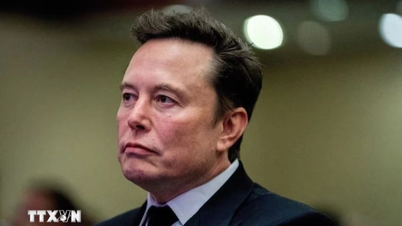







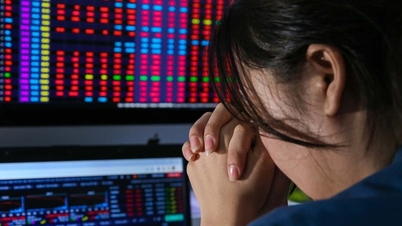

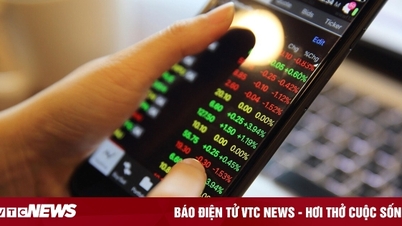

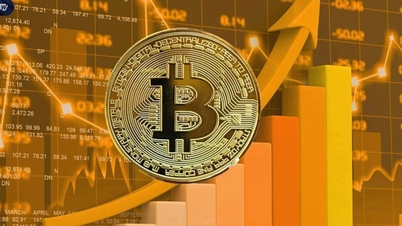
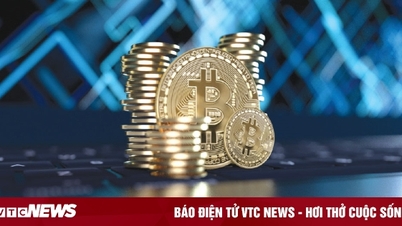

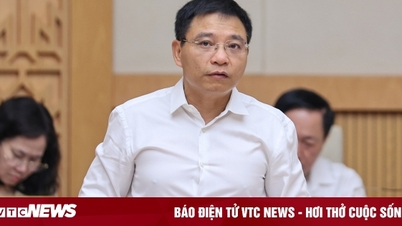
































![[VIDEO] Summary of Petrovietnam's 50th Anniversary Ceremony](https://vphoto.vietnam.vn/thumb/402x226/vietnam/resource/IMAGE/2025/10/4/abe133bdb8114793a16d4fe3e5bd0f12)

![[VIDEO] GENERAL SECRETARY TO LAM AWARDS PETROVIETNAM 8 GOLDEN WORDS: "PIONEER - EXCELLENT - SUSTAINABLE - GLOBAL"](https://vphoto.vietnam.vn/thumb/402x226/vietnam/resource/IMAGE/2025/7/23/c2fdb48863e846cfa9fb8e6ea9cf44e7)

















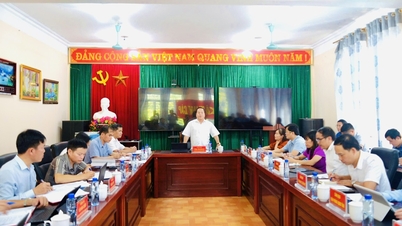


















Comment (0)